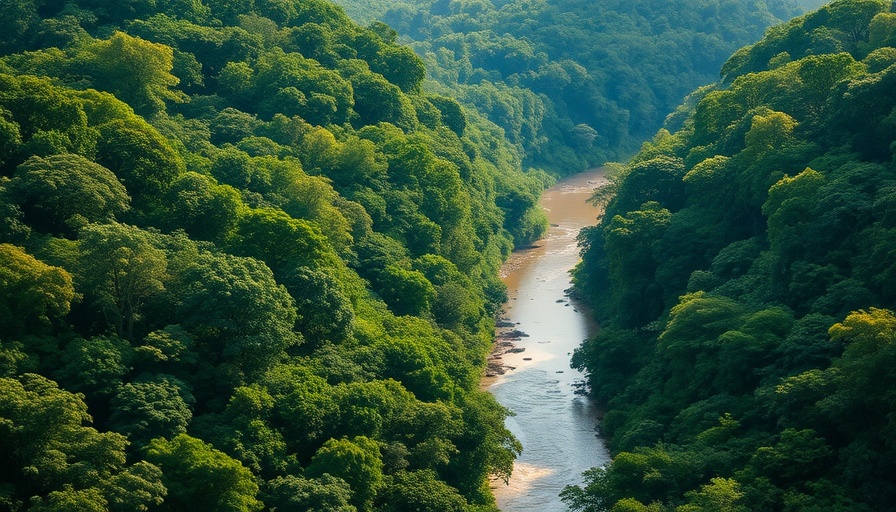
Why COP30 Is Pivotal for Climate Action
As the world eagerly anticipates the 30th Conference of the Parties (COP30), taking place in Brazil, former United Nations climate chief Christiana Figueres has expressed a robust belief that this event will be managed with a fresh approach. Unlike past conferences held in oil-rich nations, Brazil's leadership is expected to advocate for genuine climate action in a way that honors the Amazon rainforest's ecological significance. Holding COP30 in the Amazon not only symbolizes a commitment to climate action but represents a potential shift towards balancing ecological preservation and economic development.
The Contrast with Petrostate Leadership
Christiana Figueres highlighted the substantial difference between Brazil's leadership and those of previous petrostate hosts, such as Azerbaijan and the UAE, where fossil fuel interests heavily influenced outcomes. In her remarks during an online press briefing with the Oxford Climate Journalism Network, Figueres emphasized how prior COPs yielded results that were often at odds with global climate goals due to the overwhelming influence from oil and gas lobbyists. She stated, "We all know that the past COP presidencies that have taken place in petrostates have been not just heavily influenced by oil and gas lobbyists, but the governments themselves have undertaken behaviours and activities before and during the COP that were not protective of climate change." This positions Brazil differently as it prepares for its turn to host COP30.
Implications of Brazil's Oil Exploration Plans
Despite Figueres' optimism, concerns linger regarding Brazilian President Luiz Inácio Lula da Silva’s conflicting stance on climate leadership. The intention to expand oil drilling in the Amazon raises serious questions about the country's commitment to combating climate change. Lula argues that this oil extraction could fund a transition to green energy; however, many remain skeptical about the effectiveness of this strategy. Critics posit that once the infrastructure for fossil fuel extraction is in place, it can often become a barrier to the necessary investments in sustainable alternatives.
Brazil's Diplomatic Experience: A Silver Lining?
Brazil's COP30 president-designate, André Aranha Corrêa do Lago, is renowned for his extensive experience in climate diplomacy. This experience is seen as a critical factor in fostering productive dialogues at the summit. Unlike past COPs led by executives from fossil fuel sectors, Lago's background suggests a focus on multilateral cooperation that could help steer the discussions toward meaningful outcomes for sustainability.
The Amazon's Unique Role in Climate Discourse
Holding COP30 in the Amazon, regarded as the planet's 'lungs,' brings a unique significance to this year's discussions. The Amazon exemplifies not only biodiversity but also the challenges faced in preserving natural habitats while balancing development. Stakeholders will need to grapple with the reality that environmental conservation can coexist with economic opportunities—an ethos that is essential for sustainable development. Figueres’ vision underscores that COP30 can serve as a model for future climate conferences, blending ecological conservation with socioeconomic growth.
A Call to Action for a Sustainable Future
As COP30 approaches, the spotlight is firmly on Brazil's ability to uphold a commitment to climate change mitigation amidst pressures to exploit its natural resources. Eco-friendly readers and advocates are urged to engage in discussions surrounding sustainable solutions that balance economic needs with environmental stewardship. Policymakers must prioritize investments in renewable energy, sustainable agriculture, and ethical consumption practices. This commitment is vital in reducing carbon footprints and championing sustainable living practices.
If you’re passionate about environmental conservation and sustainable practices, participate in local initiatives, support green businesses, and consider your own consumption patterns. Actions such as reducing waste, advocating for renewable energy, and fostering community gardens can collectively forge a greener future. Your proactive contributions can help shape meaningful narratives around climate action as COP30 unfolds.
 Add Row
Add Row  Add
Add 



Write A Comment